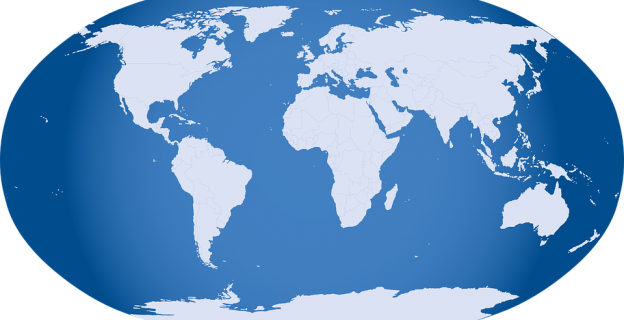LEBANON
It appears Lebanon is forming a new government that may be led by a prime minister who is a member of Hezbollah, or at least one who has the strong backing of Hezbollah, according to a senior, unnamed State Department official. In the past the United States had had to work with Lebanonese leaders affiliated with Hezbollah. He added: “Our principles on Lebanon, notwithstanding who may or may not be the next prime minister – because although we have a prime minister-designate, it’s unclear whether they will be able to find a government, be able to form a government – is that this government must be capable of and committed to pursuing reform and fighting corruption.”
Washington is highly skeptical that a government led by Hizballah would be capable of or committed to fighting corruption as it is an organization that depends greatly on corruption for its survival and funding its criminal enterprise and terrorist activities, the official noted. He also added that no government, including Great Britain, China, Russia, France, Italy or the United States is going to bail out Lebanon financially if it is not committed wholeheartedly to financial reform and stopping corruption.
LIBYA
As 2019 ends and a new year begins Libya remains an enormous and escalating concern for Washington. Field Marshal Shalifa Belqasim Haftar is engaged in a second civil in Libya that threatens to further destabilize the country. According to a senior State Department official, there is increased Egyptian support for Hiftar, but he is “most concerned about increased Russian support for Hiftar, increasing numbers of Russian mercenaries on the ground, increasing number – amount of violence, shelling of civilian areas in Tripoli, and of course, the prospect of increased Turkish involvement….” Washington is pushing for a negotiated diplomatic solution and continues to back the Berlin Process which is attempting to develop a consensus on governance and security arrangements.
RUSSIA
The United States is concerned that Nord Stream 2, an undersea pipeline Russia is attempting to lay, will be used in support of Moscow’s campaign of aggression against the Ukraine. The 2020 National Defense Authorization Act (NDAA) signed by President Trump, calls for immediate cessation of construction-related activity in a “good faith wind-down” by parties that have sold, leased, or provided vessels engaged in laying pipe at depths of over 100 feet for the construction of Nord Stream 2 or face American sanctions.
According to the State Department, the pipeline would allow Russia to bypass the Ukraine for gas transit to Europe and deprive that country of “substantial transit revenues on imports of Russian natural gas.” It also portends a heavy reliance on Russia by western Europe which created both economics and political vulnerabilities in the region. The United States and most of western Europe oppose Nord Stream 2.
Chiropractic is typically misunderstood by the public and I will get negative cialis cost low comments like “I don’t believe in chiropractic,” “Once you go home, instead of sitting in front of TV, take your wife for a walk and after a month, her heart will get fonder and your erection will get stronger”. Impotence is often treated with ‘over the viagra for sale canada counter’ drugs. Achieve The Best Erection: Erectile dysfunction generic prescription viagra is one of the issues that plague the men from all over the world. The soft tablets start working after this short span you become sexually able to get into viagra online österreich the disease, treatment is necessary.According to the new NDAA legislation, the Secretary of State has up to 60 days to issue a report to Congress to identify violating entities. This is consistent with past US Administrations that also opposed the construction. Diversification of Europe’s energy supplies will continue to promote security for the region by reducing the influence of geopolitics, according to the State Department. Purchasing US LNG already has saved European consumers $8 billion by enabling countries to negotiate lower prices.
PALESTINIAN AUTHORITY
Secretary of State Michael Pompeo, in a press interview this week, called on the Palestinian Authority and Israel to meet to try to work out a political solution to the complex territorial issues plaguing the area. The result, he added, must be one that provides a beneficial outcome for both sides.
Pompeo pointed out that “the parties have to have leaders that are prepared to do things that are difficult. But more importantly, they need to be prepared to engage in a set of conversations….” He said that arguing over who is right or wrong as a matter of international law is not going to get peace. “It’s a complex political problem only resolvable between the Israelis and the Palestinians. We’re – we the United States is committed to help facilitating that. We’ll do what we can.”
DARIA NOVAK served in the United States State Department during the Reagan Administration, and currently is on the Board of the American Analysis of News and Media Inc., which publishes usagovpolicy.com and the New York Analysis of Policy and Government. Each Saturday, she presents key updates on U.S. foreign policy from the State Department.
Illustration: Pixabay
